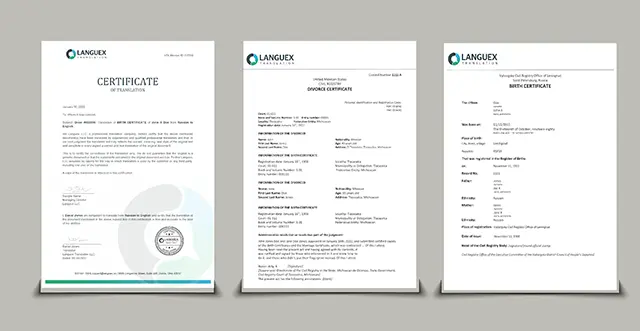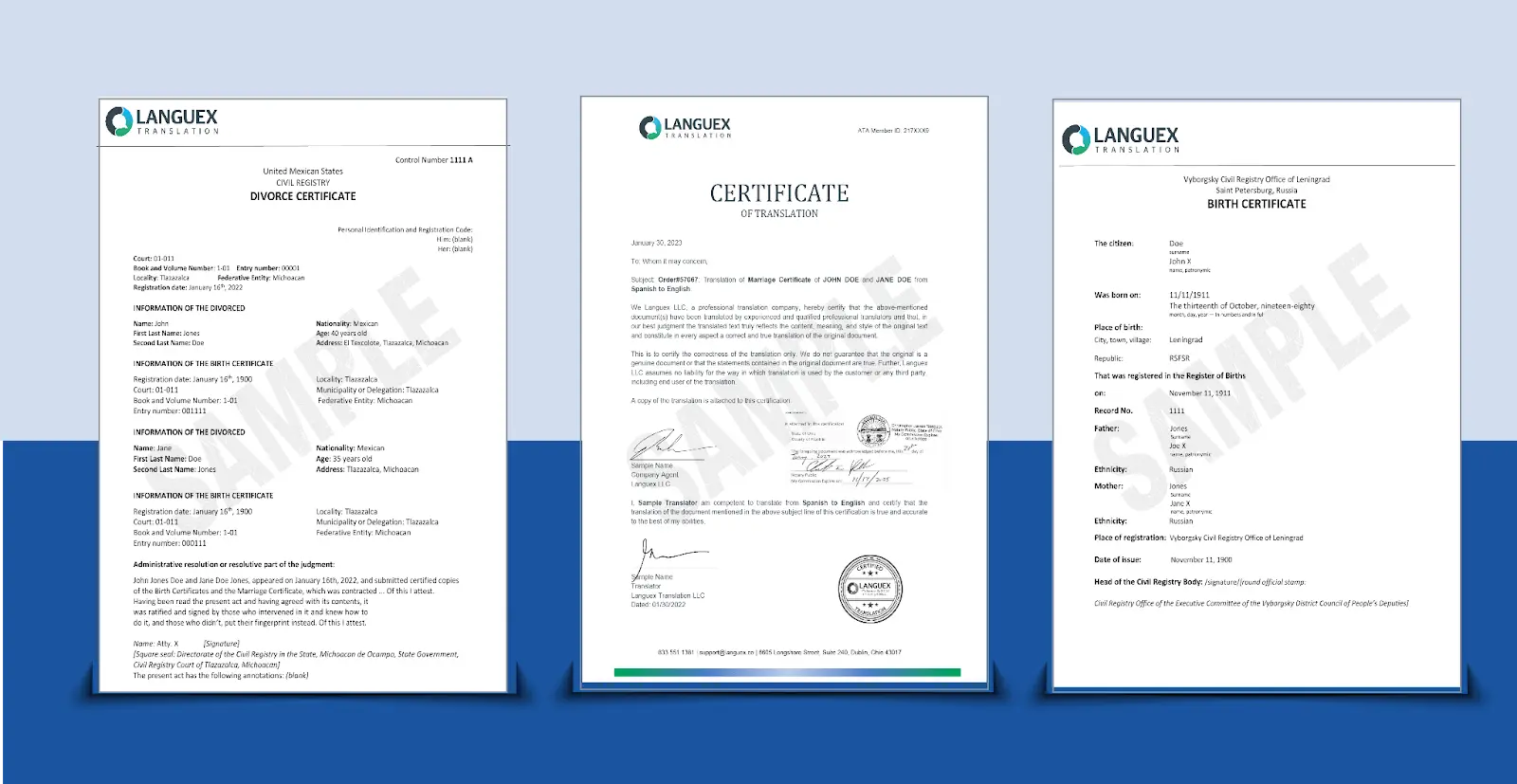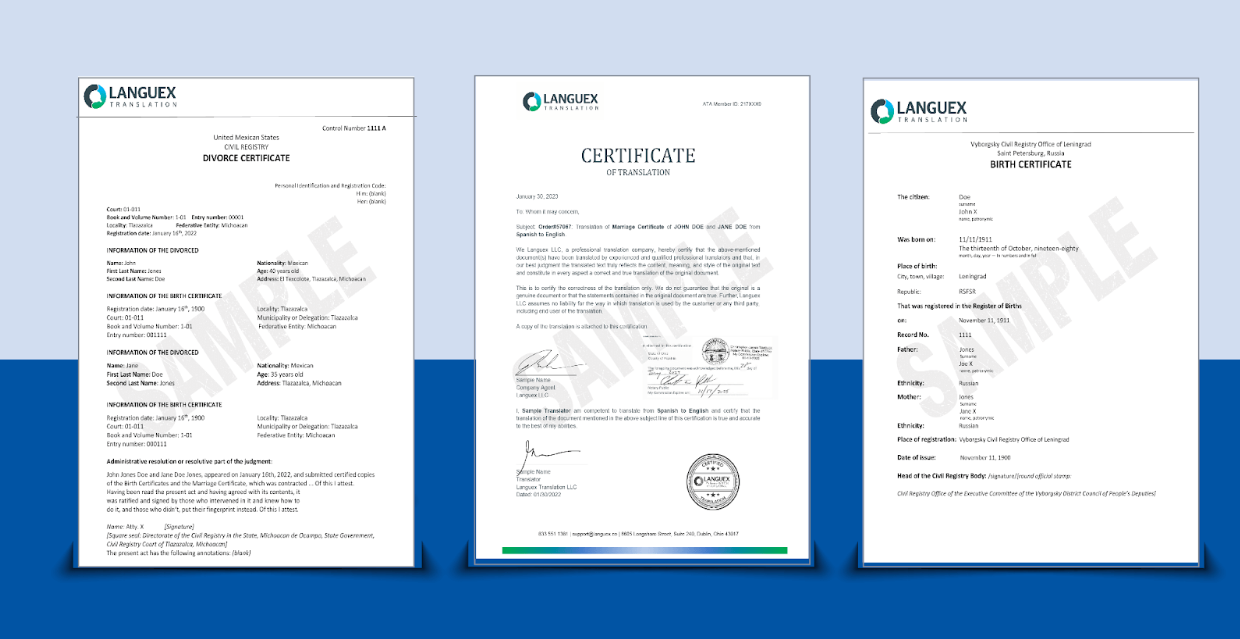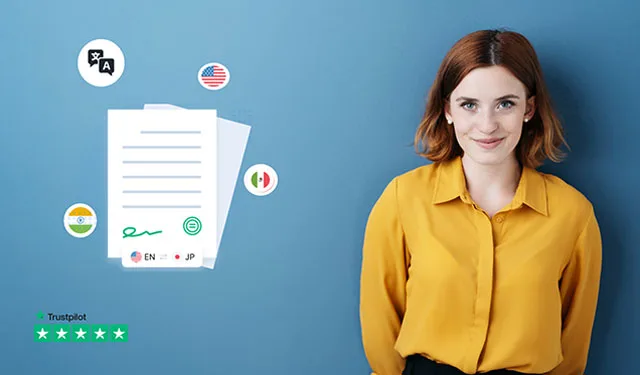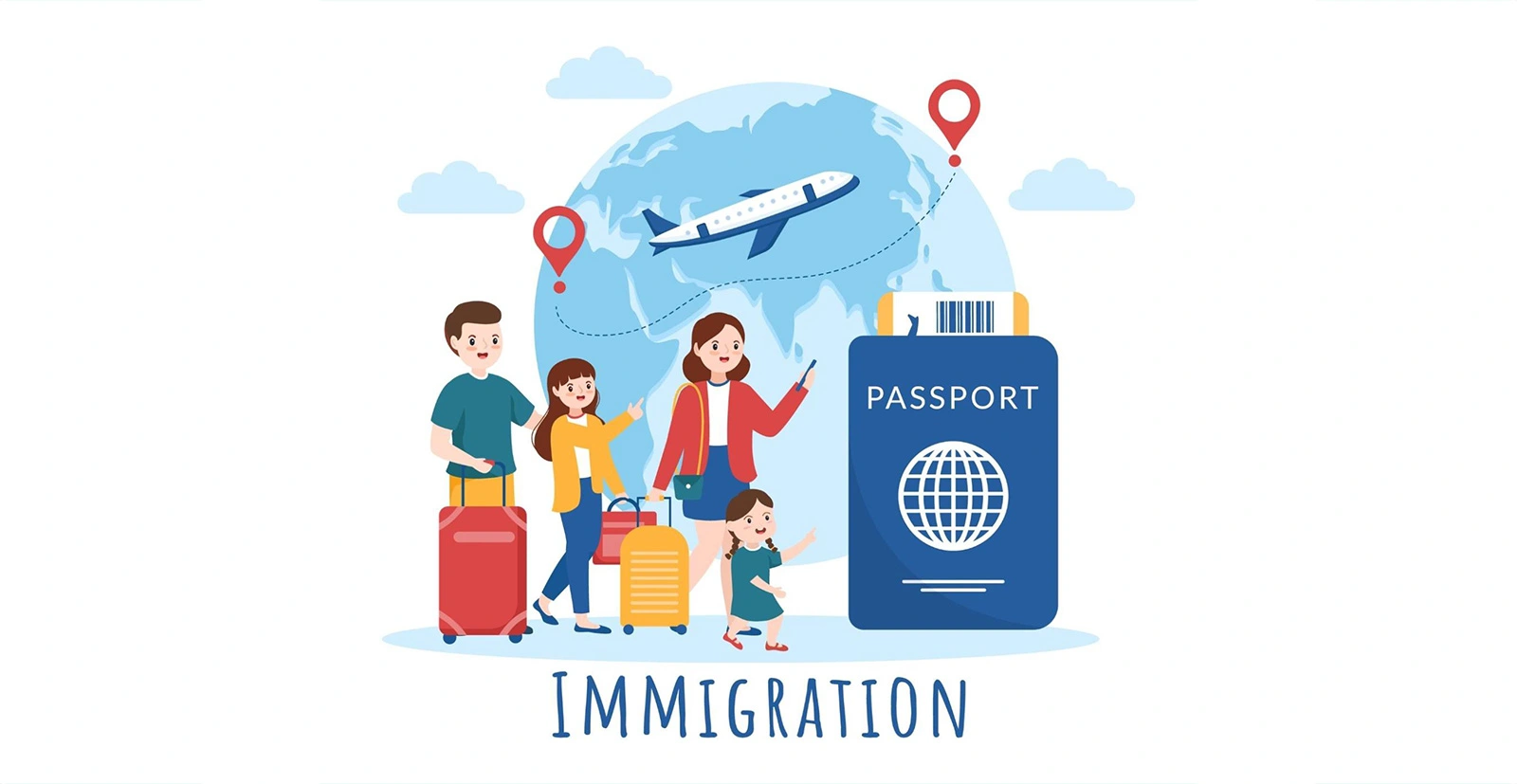Translating legal documents from one language to another is a significant challenge. Not only is there a language barrier to overcome, but the translator must also be aware of the different laws and customs in the target language.
Requesting translation services for law firms is highly recommended to overcome these obstacles and produce 100% accurate translations. This blog will explain everything you need to know about translation for law firms so you can make an informed decision.
Key Takeaways:
- Legal translation carefully puts the complex language of legal documents from one language into another accurately. Lots rides on getting lawyer speak right.
- Types of legal translation include stuff like contracts, financial forms, immigration paperwork, and more. Anything complex that lawyers handle.
- Challenges involve following different country laws precisely, retaining the right tone of voice, meeting tight deadlines, absolute accuracy, and keeping private data secure.
- Methods for legal translation are either human experts or software. Humans cost more but avoid risks like cultural gaps or subtle errors.
- Strong legal translators need deep knowledge of multiple legal systems, translation theory, native-level language abilities, and proven certification in processing complex documents.
Table of Contents:
- What is a Legal Translation?
- What are The Different Types of Legal Translations?
- What are Some Examples of Legal Translation?
- What are Some of the Challenges of Translation for Law Firms?
- What are the Two Methods of Legal Translation for Law Firms?
- What Skills Do Legal Translators Need to Possess?
- Let Languex Handle Your Legal Translation Needs
- Frequently Asked Questions
What is a Legal Translation?
A legal translation is translating words and legalese from one language to another.
It’s a comprehensive process that involves a translator collecting legal documents, fully understanding them, and translating them into the target language in a way that makes sense to the reader.
Quality and accurate legal translations are incredibly crucial for the following reasons:
- Legal proceedings are no laughing matter. Accurate legal translations ensure that the target audience can interpret important documents correctly.
- Fair legal outcomes are also hanging in the balance. Foreign judicial bodies can ultimately make honest and unbiased decisions when presented with quality legal translations.
- Time is a significant factor. Incorrect or misleading legal documents can harm the judicial system and cause future problems.
Legal translations are very common within the United States and other countries.
For example, legal document translations for law firms could be sought if someone is being extradited to the U.S. from another country. Legal translation services will be involved whenever two countries cooperate in civil and criminal matters.
What are The Different Types of Legal Translations?
Three types of law firm translations are legal, judicial, and juridical.
Let’s cover them all a bit more below.
- Legal Translation: This is the more broad type of law firm translation. It generally involves summons, warrants, and expert opinions.
- Judicial Translation: This encompasses documents about court proceedings, such as depositions, letters, rogatory, and interrogation setting minutes.
- Juridical Translation: This involves the official translation of laws, such as legally binding contracts and business partnerships.
Now that you know the legal translation, let’s discuss some examples.
What are Some Examples of Legal Translation?
As we have already described, legal translation entails any document that can be used in a country’s legal system. Some examples of standard legal translation documents are:
- Marriage and divorce certifications
- Birth certificates
- Legal Contracts
- Financial statements
- Immigration paperwork
In sum, a legal translator can process any legal jargon document.
What are Some of the Challenges of Translation for Law Firms?
Legal translation doesn’t just involve translating legalese from one language to another. It requires both excellent command of the target language and other legal systems.
If you’re searching for a translation provider for law firms, you’re likely to encounter the following roadblocks:
Foreign Regulations
As with all types of professional translation, foreign regulations and customs play an integral role. Generally speaking, successfully translating legalese requires a great deal of localization.
Localization is a broader form of translation, which means converting one reading experience to another language.
For example, if you’re localizing a contract concerning intellectual property (IP), you must master the standard legal jargon and phrases in the target language.
You may also need to account for other foreign differences in currency and formatting. Otherwise, you can confuse and even insult the reader.
Tone of Voice
Most, if not all, legal documents are text-based. This means there is a great chance the translator must present newly translated documents in a specific tone of voice.
While keeping cultural norms in mind, the translator must interpret the difference between the tone of voice from one language to another. Since legalese is complicated to understand, even for native speakers, this is a significant challenge.
Tight Deadlines
In any legal proceeding, there are often hundreds of documents to process and submit to the court. U.S. law firms have clerks and paralegals who can analyze and process these documents in time for court.
Translators must not only process the legal documents they read but also localize them through and through. This can often be an overwhelming task for law firms managing tight deadlines.
Accuracy
Accuracy is the most crucial obstacle in hiring a translation service for a law firm. Translators must be meticulous in avoiding errors and misinterpretations that could cause far-reaching consequences across the legal sphere.
Data Security
Again, some translated legal documents could include private information, such as birth certificates and bank details.
For this reason, translators need to maintain the highest standards of confidentiality to avoid this sensitive data from falling into the hands of unauthorized individuals.
What are the Two Methods of Legal Translation for Law Firms?
It should be clear now that translation for law firms is a serious undertaking. You can’t expect to use Google Translate to produce high-quality, accurate legal translations.
This is why law firms rely on two methods for translating legal documents:
- Human Translation: This is the most popular way to translate legal documents. However, it’s important to note that human translation services are often more expensive and time-consuming than their alternatives.
- Machine Translation: This alternative is usually less expensive and more efficient. However, translation software for attorneys has a high margin of error and can’t usually identify metaphors, idiomatic differences, and foreign laws.
Choosing the right provider will be your most important decision if you use human translation services. The following section will cover all the necessary traits in a qualified legal translator service.
What Skills Do Legal Translators Need to Possess?
Not all legal translation services are created equal. Here are the characteristics of every qualified legal translator:
Deep Legal Understanding
Anyone working as a legal translator needs to be well-versed in the legal systems of both countries they’re working in. Mainly, they must understand the similarities and differences between the two legal systems.
For example, a specialist translating legal documents between Saudi Arabia and the United States should understand the differences between Islamic and English law.
Knowledge of Translation Theory
We already mentioned that legal translation for law firms involves much more than turning the words from one language to another. Translators must localize new legal documents to comply with cultural norms and unique legal systems.
This is why it’s not enough to use tools like Google Translate or rely too heavily on machine translation. Qualified specialists will have a firm understanding of translation theory.
This means they’ll be able to process the unique features of their source and target language to produce highly accurate legal documents.
Native-Level Language Skills
Legal translators must be native-level speakers of the source and target language for their assignments.
This will help them understand unique metaphors and linguistic styles to overcome cultural barriers. On top of that, they will need to possess a mastery of legalese in both languages.
Certifications
Certifications in any specialized industry help to separate the inexperienced from the qualified. Qualified legal translators have proven their mastery in translating countless certified legal documents with superb accuracy.
Let Languex Handle Your Legal Translation Needs
Translating legal documents can be a challenge alone or with an unqualified translator.
At Languex, we specialize in delivering impeccable translation services for immigration law firms. Here are a few reasons why you should choose us as your next legal translator:
- We’re a certified, official legal translation agency with hundreds of successful projects completed.
- We offer a transparent pricing model—no more hidden fees.
- Our translation services are safe and secure, keeping confidentiality at a maximum.
- We provide free revisions every time.
- We have tens of thousands of positive reviews on Trustpilot. The quality of our work speaks for itself.
We’re the #1 legal translation agency you can trust regarding translation for law firms.
To get started, contact us today to learn more about our legal translation services. We typically respond in four hours!
Frequently Asked Questions
How Much Experience Do Translators Need To Offer Translation Services To Law Firms?
Translators offering services to law firms should be experienced in both the source and target languages and thoroughly familiar with the local laws where the translation is being done. For specific legal documents like contracts or pleadings, you may need a translator with legal terminology and experience working on those types of documents specifically. Make sure to check qualifications when selecting a translator for your needs.
How Do I Know That My Translation Is Accurate And High-Quality?
You can have your translator submit the translated document to a third-party agency for review and certification. While this process may require additional time and money, it can give you peace of mind that your translations are precise and adequately capture the nuances in both cultures. Additionally, always select reputable translators with a solid track record in project management so they can ensure timely delivery while delivering excellent results.

